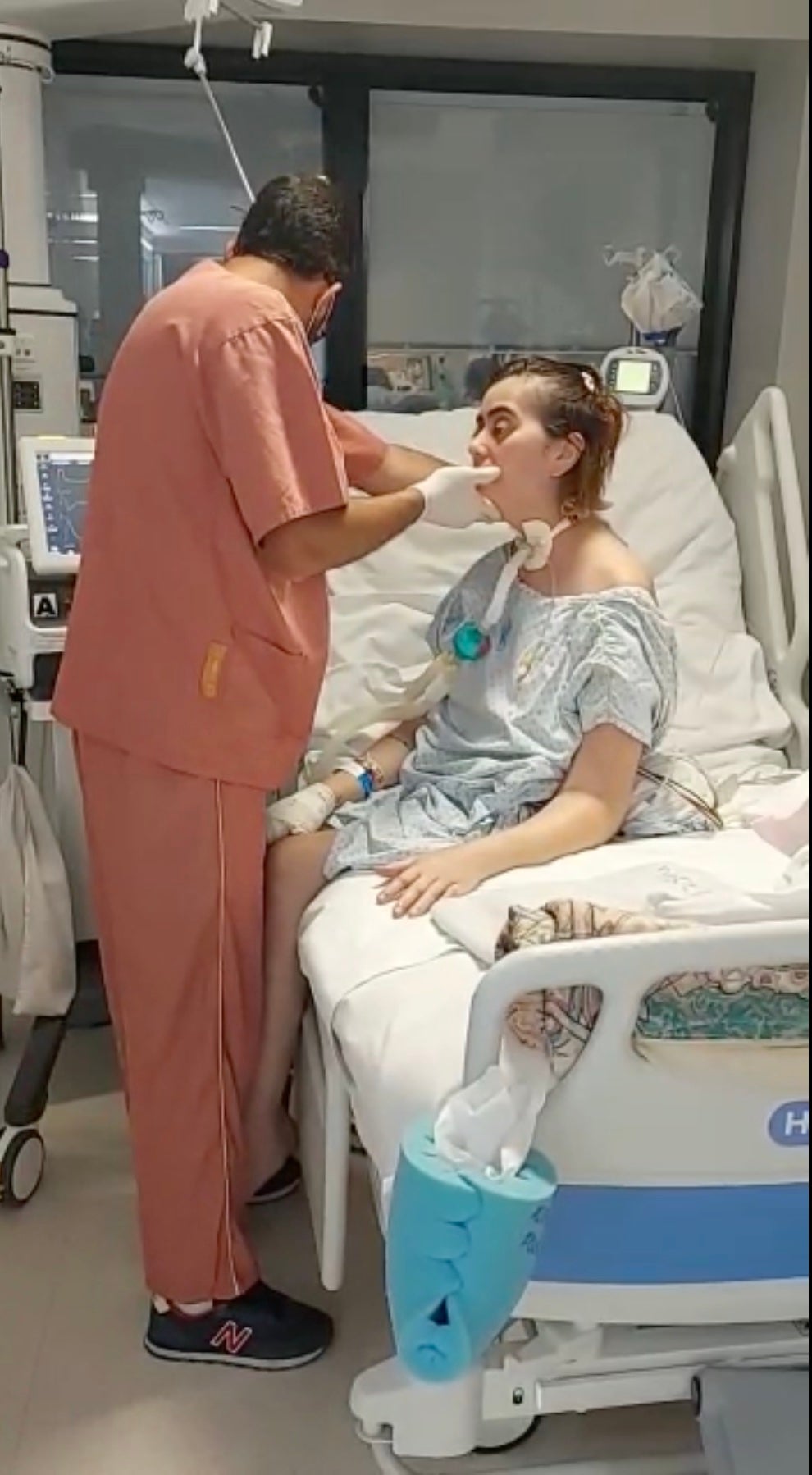The Independent's journalism is supported by our readers. When you purchase through links on our site, we may earn commission.
Woman paralysed for months after eating expired pesto
Doralice Carneiro Sobreira Goes described horror ordeal on TikTok
A 47-year-old Brazilian woman was hospitalised for more than a year after eating pesto that reportedly made her ill.
Doralice Carneiro Sobreira Goes said she bought the sauce on 31 December 2021, and ate it weeks later, in late January 2022.
“The pesto didn’t have an expiration date, and [the person who sold it to me] didn’t give me storage instructions either, but I was a frequent customer [at the store],” Goes said, per Jam Press. She said she fell ill soon after eating the pesto.
“My body didn’t feel right, my breathing had gotten worse, and my tongue felt like it was tingling,” she said. “I drove 20 kilometres to the hospital, parked the car, and then my body stopped working.”
Goes added that she lost control of her mobility once she had reached the hospital. “I couldn’t move my body so I threw myself out of the car,” she said. “It was then I saw an employee with a wheelchair, so I shouted, to which they then came over and helped me into it.”
She was vomiting and having difficulty breathing, and doctors rushed her to a computerised tomography (CT) scan. A neurologist discovered that she was mostly paralysed; Goes could only wiggle two toes when asked to move.
She soon received a diagnosis of botulism, a rare condition that occurs when a toxin produced by bacteria attacks the body’s nerves. Botulism is often the result of bacteria found in food; they thrive in home-canned food, especially, per the Mayo Clinic. Oftentimes, botulism results from homemade food that hasn’t been stored properly. It can also occur when a wound is exposed to bacteria.

Foodborne botulism causes symptoms like dry mouth, difficulty speaking or swallowing, weakness on both sides of one’s face, double vision, blurred vision, trouble breathing, drooping eyelids, vomiting, nausea, stomach cramps, and paralysis; would botulism causes some—but not all—of those symptoms.
While the symptoms of wound botulism may not show up for 10 days after a wound has been exposed to bacteria, the warning signs of foodborne botulism usually begin within 12 to 36 hours after eating the food.
It’s important to seek medical care if you think you have botulism, since it can be life-threatening. The condition affects one’s ability to control their muscles, so it can cause complications that take a long time to heal, including shortness of breath and lasting weakness.
Usually, if a doctor suspects botulism, they’ll ask what kinds of foods you’ve recently eaten. To confirm the diagnosis, they may check for paralysis or muscle weakness or drooping eyelids. They may also request a sample of one’s blood, vomit, or stool to check for the toxin that causes the illness.
Foodborne botulism is sometimes treated through medications that cause people to vomit or empty their bowels, since clearing the digestive system may ease symptoms. Antitoxins—which attach to toxins and keep them from harming the nervous system—can also be injected to treat foodborne botulism. These medications cannot reverse harm that’s already been done, but nerves can sometimes repair themselves. Wound botulism is commonly treated with antibiotics.

Goes was given an anti-botulinum drug and physical therapy; she and her doctors decided it was likely the pesto that had caused her illness. “It was one of the only things I had recently eaten, [and] it was homemade,” she said. “It seemed that a bacteria had formed in the pesto, which contained a toxin.”
Goes had to remain in the hospital for one year after she was admitted. “I had treatments every day of the week,” she said. “I was…given dry compressions and electroshocks to relieve chronic pain. When I got more strength in my upper body, I also adapted [to] playing table tennis.
She was recently released from the hospital after making much progress. “I have been breathing without help for nine months, which is a good sign,” she said, adding that she’s now able to go to the bathroom by herself and feed herself as well. “I have the help of a walker to help me get around, but it’s still hard,” Goes said.
There are a couple of ways to lower your chances of suffering from foodborne botulism, per the Centers for Disease Control and Prevention (CDC). You can refrigerate homemade foods that might lead to exposure to the toxin, such as oils infused with herbs or garlic, and keep baked potatoes wrapped in aluminium foil hot (which is defined as above 140 degrees Fahrenheit) until they’re served. Additionally, it’s important to refrigerate pickled or canned foods after they’ve been opened, the CDC says.
Goes said she avoids shops like the one where she bought the pesto that made her ill. “I’m careful when buying [food] from restaurants, shops, fairs,” she said. “I now only like to buy food from manufacturers to avoid any more accidents.”
Join our commenting forum
Join thought-provoking conversations, follow other Independent readers and see their replies
Comments


Bookmark popover
Removed from bookmarks